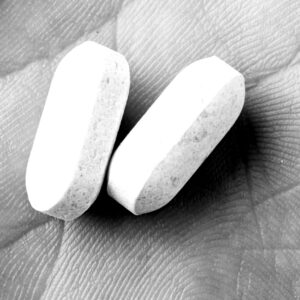Collagen is one of the primary proteins in your body. Comprising amino acid chains, it’s an important part of structural components and connective tissues like skin, tendons, muscles, ligaments, and blood vessels, as well as parts of your eyes and teeth.
Collagen also helps with blood clotting, wound healing, and protecting the nervous system.
Certain foods, including bone broth, beef, fish, chicken, dairy, and eggs, either contain collagen or help your body produce it on its own by providing essential amino acids and other nutrients needed to do so.
Because your body is capable of producing all of the collagen you need if you eat a balanced diet, supplements may not be necessary for everyone. Still, you may choose to do so to reap certain health benefits or help treat collagen deficiency or other conditions.
This article examines how much collagen you should take per day.
As your body ages, it loses collagen. By age 40, you can lose up to 1% of your body’s collagen each year.
Other factors like diet, regularly smoking, consuming alcohol, and sun exposure also affects collagen loss.
Loss of this protein is one reason why your skin loses structure and begins to wrinkle as you age. It may also affect the strength of your bones, joints, and more.
Thus, some common applications of collagen supplements include:
- skin structure preservation
- wound healing
- anti-ageing support
- osteoarthritis, a common cause of joint pain
- bone loss prevention
- muscle mass improvement
- hair and nail health


